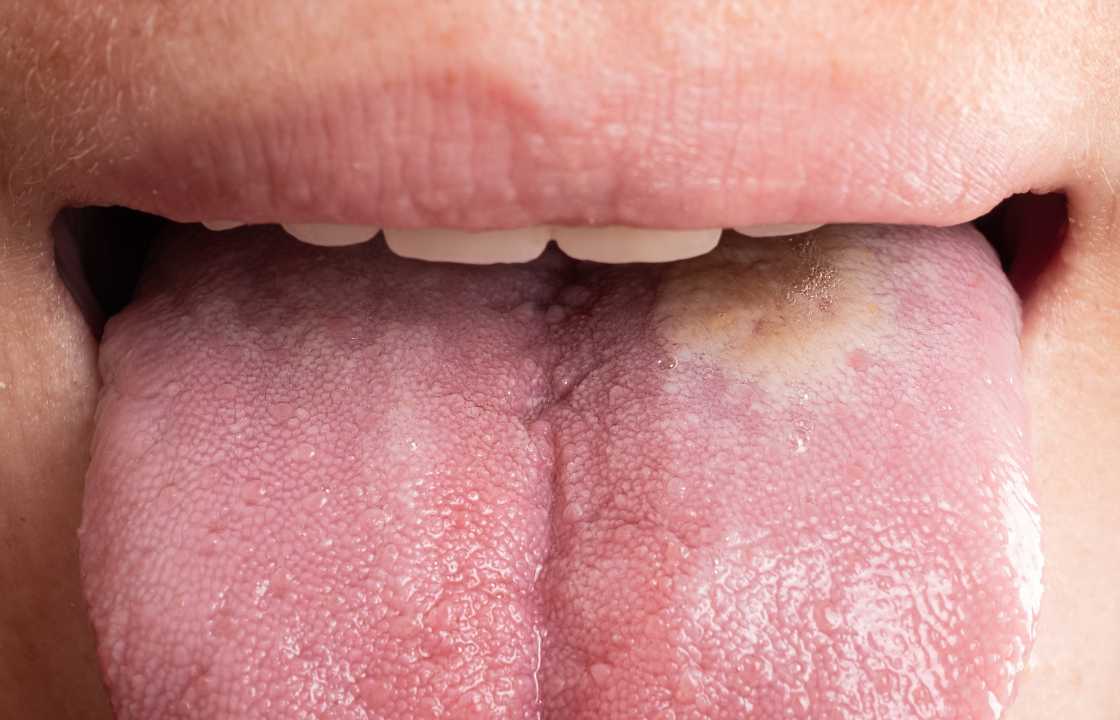Cancer, Oral Health
Tongue Cancer Facts
Oral tongue cancer, one of several oral cancers, is a condition characterized by the uncontrolled division of cells, resulting in the formation of a tumor or growth within the mouth. These cancers can be classified into two main types: oral tongue cancer, which affects the visible part of the tongue, and oropharyngeal cancer, which occurs at the base of the tongue where it connects to the throat. While less common than many other cancer types, oral tongue cancer primarily affects older adults and is a rarity in children. This article delves into the symptoms, causes, diagnosis, treatment, and prevention of oral tongue cancer.
Symptoms of Oral Tongue Cancer
Oral tongue cancer is often associated with distinct symptoms, making it crucial to be vigilant and seek medical attention if any of these signs manifest. The common symptoms include:
1. Lump or Sore on the Tongue: One of the initial signs of oral tongue cancer is the presence of a persistent lump or sore on the side of the tongue. This abnormality typically fails to heal over time and may appear pinkish-red. It may also exhibit bleeding when touched or bitten.
2. Pain: Pain or discomfort in or around the tongue can be indicative of oral tongue cancer.
3. Voice Changes: Changes in one’s voice, such as hoarseness or alterations in speech patterns, can be associated with tongue cancer.
4. Difficulty Swallowing: Tongue cancer can lead to difficulty in swallowing, affecting one’s ability to consume food and liquids comfortably.
It is vital to consult a healthcare professional if a sore on the tongue or within the mouth persists for more than a few weeks, as early detection and diagnosis are key to effective treatment.
If the cancer is situated at the base of the tongue, individuals may not exhibit noticeable symptoms. In such cases, dentists or doctors may identify signs of tongue cancer during routine check-ups or medical examinations.
Causes of Oral Tongue Cancer
1. Human Papillomavirus (HPV): One of the leading causes of tongue cancer, particularly at the base of the tongue, is the human papillomavirus (HPV). HPV is a sexually transmitted infection that can also infect the genital area, giving rise to conditions such as cervical cancer, penile cancer, and anal cancer. It is essential to note that there are numerous types of HPV, with high-risk HPV strains posing an increased risk of cancer development.
2. Lifestyle Factors: Several lifestyle-related factors can elevate the risk of developing oral tongue cancer. These include:
- Tobacco Use: Smoking and smokeless tobacco products can significantly increase the likelihood of tongue cancer.
- Alcohol Use: Heavy or frequent alcohol consumption is a known risk factor for oral cancers.
- Dental Health: Poor dental hygiene, including jagged teeth and neglecting oral health, may contribute to the development of tongue cancer.
3. Genetic Predisposition: Genetics may also play a role in determining an individual’s susceptibility to tongue cancer. Some individuals may have a genetic predisposition that increases their likelihood of developing this cancer.
Diagnosis of Oral Tongue Cancer
A timely and accurate diagnosis is pivotal for effective management of oral tongue cancer. The diagnostic process typically involves the following steps:
1. Physical Examination: A healthcare professional will perform a thorough examination of the oral cavity and inquire about any symptoms or discomfort experienced by the patient.
2. Imaging Studies: To gain a comprehensive understanding of the extent and location of the tumor, imaging studies such as X-rays or CT scans may be conducted. These studies provide detailed images of the affected area.
3. Biopsy: A biopsy, the gold standard for cancer diagnosis, involves the removal of a tissue sample from the tongue lesion. The sample is then sent to a laboratory for analysis to determine if cancer cells are present.
Treatment Options for Oral Tongue Cancer
The choice of treatment for oral tongue cancer depends on factors such as the tumor’s location and size. The following are common treatment modalities for oral tongue cancer:
1. Surgery: Surgical removal of the tumor is often the primary approach for treating oral tongue cancer that affects the visible part of the tongue. During surgery, the surgeon may also remove healthy tissue and nearby lymph nodes to ensure the complete elimination of cancer cells.
2. Radiation Therapy: If the cancer is situated at the back of the tongue, radiation therapy is a preferred treatment option. This therapy employs X-rays and radiation to target and destroy cancer cells.
3. Combined Therapy: In some cases, a combination of chemotherapy (cancer-fighting drugs) and radiation therapy may be recommended as the most effective treatment approach.
4. Rehabilitation: Following treatment, patients may require rehabilitation to address difficulties related to chewing, tongue movement, swallowing, and speech.
Regular follow-up checkups are essential for monitoring the patient’s condition and ensuring that cancer has not recurred.
Preventing Oral Tongue Cancer
Preventive measures play a pivotal role in reducing the risk of oral tongue cancer. Some key strategies include:
1. HPV Vaccination: HPV vaccination is recommended, depending on age. It is advisable to discuss vaccination options with a healthcare provider.
2. Safe Sexual Practices: Practicing safe sex, including the consistent use of latex condoms, can help reduce the risk of HPV transmission.
3. Tobacco Abstinence: Avoiding all forms of tobacco, including smoking and smokeless tobacco, significantly lowers the risk of oral tongue cancer.
4. Moderation in Alcohol Consumption: Limiting alcohol intake, particularly heavy or frequent consumption, is advisable to reduce the risk of oral cancer.
5. Dental Hygiene: Maintaining good dental hygiene practices and seeking regular dental check-ups are crucial preventive measures.
In summary, oral tongue cancer, while less common, demands attention and awareness. Recognizing its symptoms, understanding the underlying causes, seeking early diagnosis, and embracing preventive strategies are pivotal steps in the management of this condition. Timely intervention, along with lifestyle modifications, can contribute to favorable outcomes and a reduced risk of oral tongue cancer.

